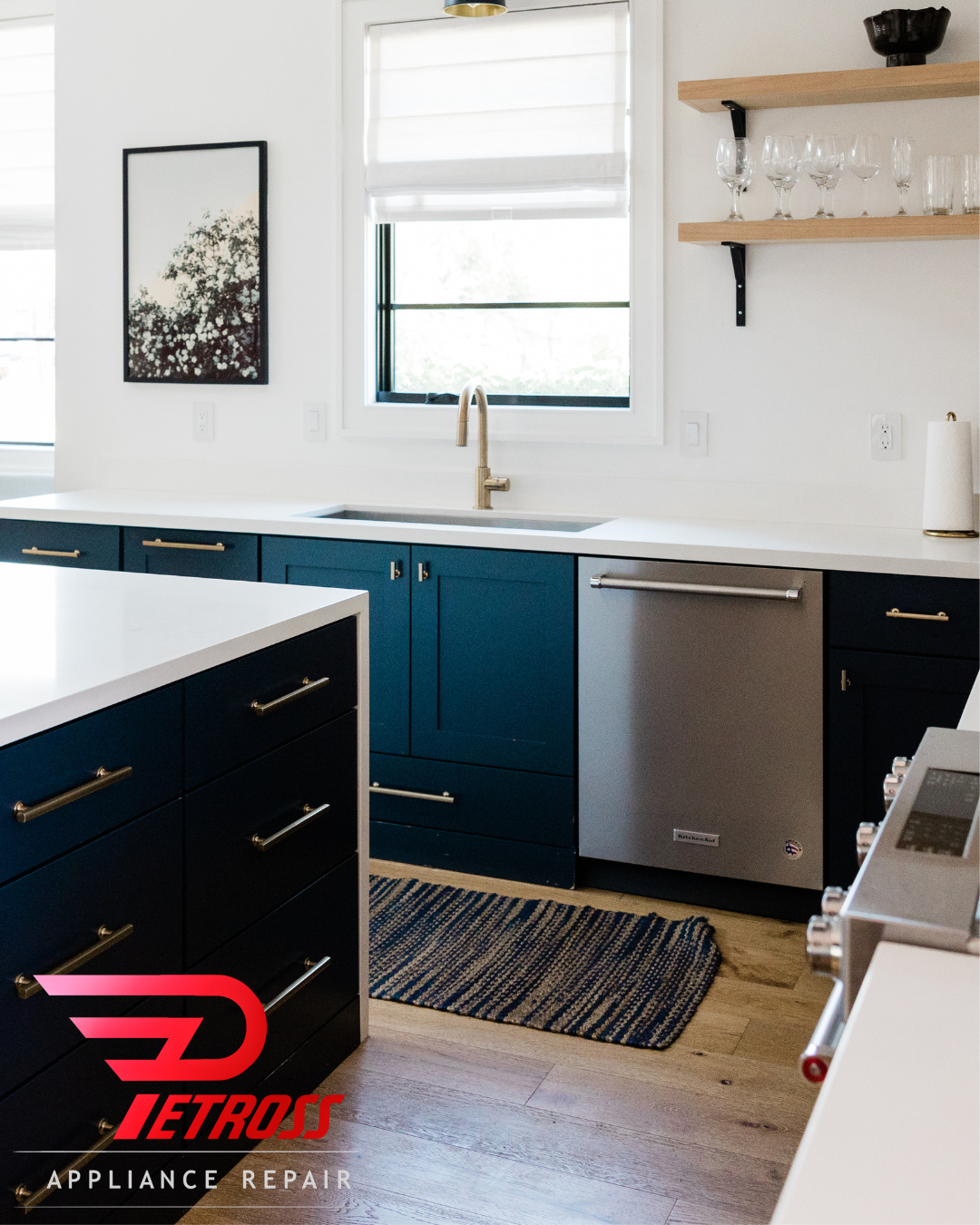
Solving Dishwasher Leaks at Home: Expert Advice
Solving Dishwasher Leaks at Home: Expert Advice for Your Leaking Dishwasher
What Are the Common Causes of a Dishwasher Leak?
Understanding the Source of the Leak in Your Dishwasher
Common Causes of Dishwasher Leaks: A Breakdown
Identifying Evidence of Leaking from the Bottom of the Dishwasher
How Can You Find a Leak in Your Dishwasher?
Steps to Check for Leaks Inside the Dishwasher Tub
Inspecting the Water Supply Line Connection
Pull the Dishwasher: How to Locate the Source of the Leak
What Should You Do if Your Dishwasher is Leaking?
Immediate Actions: Shut Off the Water Supply
How to Assess Water Damage Caused by a Leaky Dishwasher
Common Dishwasher Repair Resources for Homeowners
Can You Repair a Leaky Dishwasher Yourself?
DIY Tips for Fixing a Dishwasher Leak
When to Consult a Professional for Dishwasher Repair
Common Reasons Your Bosch or Electrolux Dishwasher Might Leak
How to Help Prevent Dishwasher Leaks in the Future?
Keeping Your Dishwasher Running Smoothly: Maintenance Tips
Checking the Dishwasher Gasket and Door Seal Regularly
Replacing Damaged Components Under the Dishwasher
Solving Dishwasher Leaks at Home: Expert Advice for Your Leaking Dishwasher
Dealing with a leaking dishwasher can be a frustrating experience for any homeowner. Understanding the causes of a dishwasher leak and knowing how to identify and fix it can save you time, money, and potential water damage in your home. This guide will explore common causes of dishwasher leaks, how to locate them, and tips for both DIY repairs and maintenance to keep your appliance running smoothly.
What Are the Common Causes of a Dishwasher Leak?
Understanding the Source of the Leak in Your Dishwasher
To effectively tackle a leaking dishwasher, it’s essential to understand the source of the leak. Many homeowners may overlook the possibility of a damaged dishwasher gasket or a faulty water supply line connection. These components are crucial for maintaining a watertight seal during operation. The door seal, in particular, can wear out over time, allowing water to escape from the dishwasher door. If you suspect a leak in your dishwasher, examining these areas first can often reveal the cause of the leak.
Additionally, checking for leaks inside the dishwasher tub can also point to potential problems. The buildup of food debris or other obstacles can obstruct the normal flow of water, leading to leaks. Regular inspection and maintenance of these components are vital for prolonging the life of your dishwasher and preventing leaks from becoming a recurring issue.
Common Causes of Dishwasher Leaks: A Breakdown
There are several common causes of dishwasher leaks that homeowners should be aware of. First, a loose or damaged water supply line can lead to water leaking out of the dishwasher. Similarly, cracks or wear in the dishwasher tub can result in leaks that go unnoticed. If the dishwasher door doesn’t close properly due to damage or misalignment, this can also be a source of leaks. Lastly, clogged filters or drains can lead to water pooling inside the dishwasher, which may eventually leak out. Identifying these issues early can prevent minor problems from escalating into costly repairs.
Understanding these common causes of dishwasher leaks allows you to take proactive measures. Regularly inspecting these components can help you catch problems before they cause significant water damage. By addressing issues as they arise, you can maintain a functioning dishwasher and avoid extensive repairs down the line.
Identifying Evidence of Leaking from the Bottom of the Dishwasher
When you suspect a leak in your dishwasher, identifying evidence of leaking from the bottom of the dishwasher is crucial. Water pooling underneath the appliance is often the first sign of trouble. Inspect the area around the dishwasher for water stains or dampness, which can indicate a persistent leak. Additionally, if you notice puddles forming after a wash cycle, this could be a clear sign of a malfunction. Checking the water supply line for any visible damage or loose connections can also provide insight into the source of the leak.
Furthermore, if you see water dripping from the bottom of the dishwasher during operation, it’s essential to act quickly. This can lead to not only water damage but potential electrical hazards if water reaches the dishwasher’s circuit breaker. Taking immediate action by shutting off the water supply can help mitigate any further damage. Regular inspections and maintenance can help prevent leaks from becoming a significant issue in the first place.
How Can You Find a Leak in Your Dishwasher?
Steps to Check for Leaks Inside the Dishwasher Tub
Finding a dishwasher leak can sometimes be a challenging task. Start by checking inside the dishwasher tub for any signs of leaks. Run a cycle with the dishwasher empty while watching for water drips or pooling. Focus on areas where the tub meets the door and the edges of the appliance. If you notice water inside the dishwasher tub after a cycle, this may indicate an internal leak that needs addressing. Pay close attention to the dishwasher gasket, as a worn or damaged gasket can lead to leaks during operation.
Also, it’s a good idea to inspect the spray arms and their connections, as blockages can cause improper water distribution, leading to leaks. If water is escaping during the cycle, it may indicate that the spray arms are malfunctioning or that there is a blockage somewhere in the system. Taking the time to thoroughly check these areas will help you find the source of the leak and determine whether it can be fixed or if a replacement is necessary.
Inspecting the Water Supply Line Connection
Another essential step in finding a leak in your dishwasher is inspecting the water supply line connection. Begin by examining the connection points where the water supply line hooks up to the dishwasher. Look for any visible signs of damage, such as cracks, which can lead to leaks. A loose connection may also allow water to escape, so tightening the fittings can sometimes resolve the issue. Additionally, check for kinks or bends in the water supply line, as these can restrict water flow and potentially cause leaks.
Moreover, if you find that the water supply line is old or corroded, it may be time to replace it. A new water supply line can prevent future leaks and ensure your dishwasher operates efficiently. Regular maintenance of the water supply line connection is crucial for preventing leaks and keeping your dishwasher running smoothly. Taking these proactive steps can save you from costly repairs and water damage in the long run.
Pull the Dishwasher: How to Locate the Source of the Leak
If you are unable to find the source of the leak by inspecting the interior and water supply line, it may be necessary to pull the dishwasher out from its cabinet for a thorough inspection. Start by disconnecting the power and shutting off the water supply to ensure safety during the process. Once the dishwasher is pulled out, check for leaks underneath the appliance, particularly around the drain hose and water supply line. This area is often overlooked and can be the source of a leak that leads to water pooling on your kitchen floor.
While the dishwasher is out, inspect the flooring underneath for any signs of water damage. If there are stains or damp spots, this could also indicate that the leak is coming from somewhere else within the dishwasher. Additionally, make sure to check the condition of the dishwasher’s insulation and any other components that may be affected by moisture. By taking the time to pull the dishwasher out and inspect these areas, you can more accurately locate the source of the leak and determine the appropriate steps for repair.
What Should You Do if Your Dishwasher is Leaking?
Immediate Actions: Shut Off the Water Supply
If you discover that your dishwasher is leaking, the first immediate action you should take is to shut off the water supply. This will help prevent further water damage to your kitchen and surrounding areas. Locate the shut-off valve, which is typically found under the sink, and turn it off to stop the flow of water. Taking this step can save you from more extensive repairs and costly water damage. Once the water supply is off, you can begin to assess the situation further.
After shutting off the water supply, take the time to clean up any excess water that has leaked onto the floor. This will help prevent slips and falls while you investigate the source of the leak. It’s also wise to check the circuit breaker for the dishwasher to ensure everything is safe before proceeding with any further troubleshooting. Taking these immediate actions can significantly mitigate the risks associated with a leaking dishwasher and lay the groundwork for effective repairs.
How to Assess Water Damage Caused by a Leaky Dishwasher
Once you have addressed the immediate leak in your dishwasher, it is essential to assess any water damage that may have occurred. Start by inspecting the area around the dishwasher for signs of mold or water stains, which can indicate long-term exposure to moisture. Check the cabinetry, flooring, and any nearby appliances for signs of damage. If you notice warped wood or discoloration, these are indications that water has penetrated the material and may require repair or replacement.
Furthermore, evaluating the condition of the electrical components near the dishwasher is crucial. Water damage can lead to electrical hazards, so ensure that everything is dry and in good condition before using the appliance again. If you find significant water damage, it may be worth consulting a professional to determine if repairs are necessary. Taking the time to assess the damage can help you understand the extent of the issue and whether you need to take further action.
Common Dishwasher Repair Resources for Homeowners
When faced with a leaking dishwasher, knowing where to find reliable repair resources can be invaluable. Many homeowners turn to online forums and websites dedicated to appliance repair for guidance. These resources often provide troubleshooting tips and step-by-step instructions for fixing common dishwasher issues. Additionally, manufacturers often have comprehensive repair guides and customer support services that can assist you in diagnosing the problem with your appliance.
Local appliance repair shops can also be a great resource for homeowners dealing with dishwasher leaks. Many technicians have years of experience and can quickly identify the cause of the leak and recommend appropriate solutions. If you prefer a DIY approach, purchasing a repair manual specific to your dishwasher model can also provide detailed information on how to fix the issue yourself. Utilizing these common repair resources can empower you to take control of the situation and ensure your dishwasher is back in working order.
Can You Repair a Leaky Dishwasher Yourself?
DIY Tips for Fixing a Dishwasher Leak
Many homeowners wonder if they can tackle a leaky dishwasher themselves. The good news is that many minor leaks can be fixed with some DIY knowledge and the right tools. Start by identifying the source of the leak, whether it’s a damaged door seal, loose connection, or an issue with the dishwasher tub. Once you have pinpointed the problem, you can take steps to fix it, such as replacing the dishwasher gasket or tightening the water supply line connection.
Additionally, cleaning out the filter and drain can help resolve leaks caused by blockages. Make sure to follow safety procedures, such as shutting off the power and water supply before working on the appliance. If you feel confident in your abilities, many homeowners successfully repair minor leaks without needing to call in a professional. Taking a proactive approach to fixing your dishwasher can save you time and money in the long run.
When to Consult a Professional for Dishwasher Repair
While many leaks can be addressed through DIY methods, there are times when consulting a professional is necessary. If you encounter a significant leak that causes extensive water damage or if the source of the leak is difficult to pinpoint, it may be time to call in an expert. Professional technicians have access to specialized tools and resources that can help diagnose the underlying issues more accurately than most DIY attempts.
Furthermore, if your dishwasher is still under warranty, attempting major repairs yourself may void it, making it advisable to consult the manufacturer or a licensed technician. In cases where the dishwasher is a high-end brand, like Bosch or Electrolux, specialized knowledge may be required for effective repairs. Knowing when to seek professional help can save you significant headaches and ensure that your dishwasher is repaired correctly and efficiently.
Common Reasons Your Bosch or Electrolux Dishwasher Might Leak
Understanding the common reasons your Bosch or Electrolux dishwasher might leak can help you take preventative measures. For Bosch dishwashers, leaks often occur due to worn-out door seals or issues with the appliance’s water supply line. Similarly, Electrolux models may experience leaks from clogged drains or faulty connections that disrupt the flow of water. Regularly inspecting these components can prevent leaks from becoming a significant problem.
Additionally, both brands are known for their durability, but neglecting maintenance can lead to issues over time. Make it a habit to check for blockages and clean the filters regularly to keep your dishwasher functioning efficiently. By being proactive and addressing these common concerns, you can extend the life of your dishwasher and avoid costly repairs associated with leaks.
How to Help Prevent Dishwasher Leaks in the Future?
Keeping Your Dishwasher Running Smoothly: Maintenance Tips
Preventing dishwasher leaks in the future starts with proper maintenance. Regularly cleaning the dishwasher and its components is essential for keeping it in top working condition. This includes running a wash cycle with a dishwasher cleaner to help eliminate buildup and debris that can cause leaks. Additionally, make sure to inspect the dishwasher tub and door seal for any signs of wear or damage, replacing them as necessary.
Another critical maintenance tip is to check the water supply line and connection frequently. Look for signs of wear, such as fraying or corrosion, and tighten any loose fittings to ensure a secure connection. By adhering to these maintenance practices, you can significantly reduce the chances of experiencing a leaky dishwasher in the future.
Checking the Dishwasher Gasket and Door Seal Regularly
One of the most effective ways to help prevent dishwasher leaks is by regularly checking the dishwasher gasket and door seal. These components are essential for creating a watertight seal during operation. If you notice any cracks, tears, or signs of wear, it’s important to replace them immediately. A compromised door seal can lead to leaks that may go unnoticed until significant water damage occurs.
Additionally, keeping the door seal clean from debris can enhance its effectiveness. Wipe down the seal regularly to ensure there are no obstructions that could prevent it from sealing properly. By being diligent in maintaining the gasket and door seal, you can help prevent leaks and prolong the life of your dishwasher.
Replacing Damaged Components Under the Dishwasher
When it comes to preventing future leaks, replacing damaged components under the dishwasher is crucial. Many leaks originate from worn-out hoses or connections that become compromised over time. Regularly inspecting these areas for signs of wear or corrosion can help you catch potential problems before they escalate into leaks. If you notice any damaged components, such as a frayed water supply line or a leaky drain hose, it’s best to replace them promptly.
Furthermore, ensuring that the dishwasher is level can also help prevent leaks. An unlevel appliance can cause water to pool in areas that may lead to leaks. By taking these proactive measures, you can help keep your dishwasher in excellent condition and significantly reduce the likelihood of future leaks. Investing in regular maintenance and timely repairs can save you from costly water damage and keep your kitchen running smoothly.




